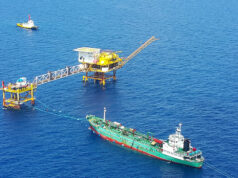SOLAR PHILIPPINES Tarlac Corp. has offered to sell electricity to Manila Electric Co. (Meralco) at P2.34 per kilowatt-hour (kWh), challenging a previous offer from a competitor at P2.98 per kWh in a move that could become the latest benchmark in pricing solar energy.
“The first year is P2.34 [per kWh], and there’s an escalation and the levelized cost is still significantly below the original offer of P2.98,” Solar Philippines President Leandro L. Leviste told reporters.
“We submitted our offer many months ago and it had taken Meralco a long time to evaluate it. But now we’re hopeful that the proceedings will end soon since they have accepted it as the lowest price in the CSP (competitive selection process),” he said.
CSP is the government scheme aimed at lowering power costs by subjecting a power supply agreement to a price challenge. The original proponent is allowed to exercise a right to match the price offered by the challenger.
“Now [it’s] just subject to the original proponent’s exercise or non-exercise of the right to match,” said Mr. Leviste.
Meralco said in February that it had received an offer for an additional capacity of 50-megawatts (MW) from Pilipinas Newton Energy Corp. at P2.98 per kWh, the lowest offer it had received at that time.
Meralco’s first solar power supply agreement is with Solar Philippines at P5.39 per kWh. It was followed by a deal with PowerSource First Bulacan Solar, Inc. at P4.69 per kWh, and another contract with Solar Philippines at P2.99 per kWh.
“It was supposed to pass already but I believe there was an extension for them to have more time to decide. So it depends on Meralco when they will end the period during which the original proponent can decide,” Mr. Leviste said.
He said the Solar Philippines unit that offered the price challenge is the same one that offered the P2.99 per kWh to Meralco. The energy will be sourced from the company’s Tarlac solar farm, which is to be expanded from the existing 150-MW capacity.
“We are still finalizing [the expansion] based on technical studies of NGCP (National Grid Corporation of the Philippines) on the maximum allowable capacity for our Tarlac solar power plant eventually,” he said.
“Currently, our plan is to within the next few years expand it to a total 450 MW from the current 150 MW,” he said.
Mr. Leviste said the CSP was delayed because of a new regulation from the Department of Energy that called for new power supply agreements to be redone, this time with the distribution utility calling on power suppliers to submit their competitive bids.
He said Meralco had sought for clarification from the Energy department on whether the new rule covered the offer made to Meralco earlier this year.
“Overall, we just hope that this is yet another signal to the market that solar is the cheapest form of energy in the Philippines, and even with [battery] storage,” he said, adding that his offer could result in the country having one of Asia’s lowest cost of electricity. — Victor V. Saulon



